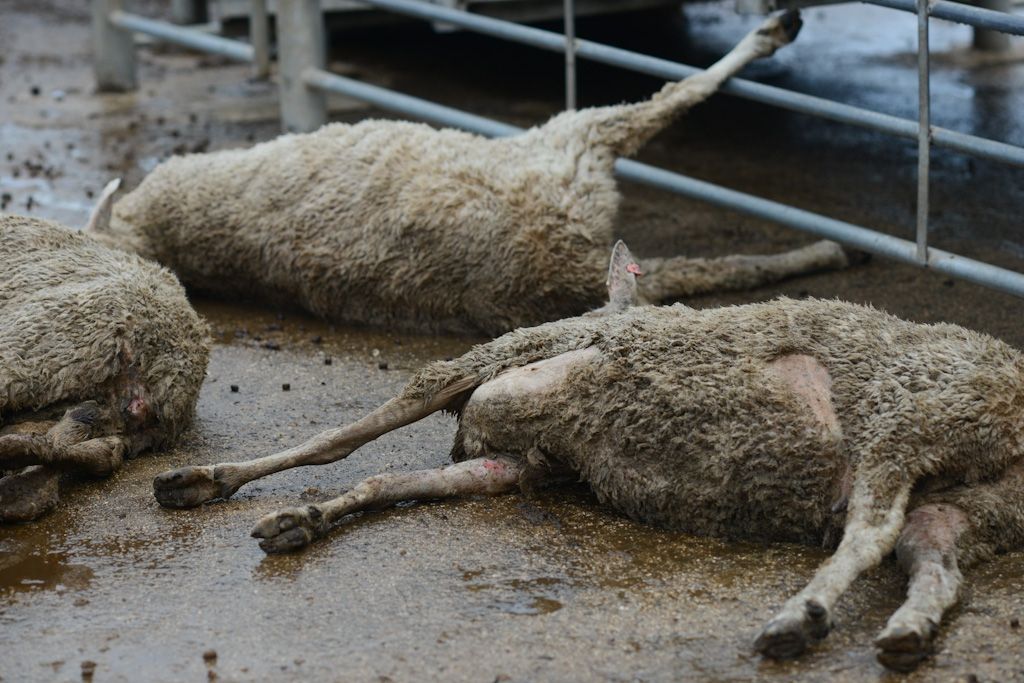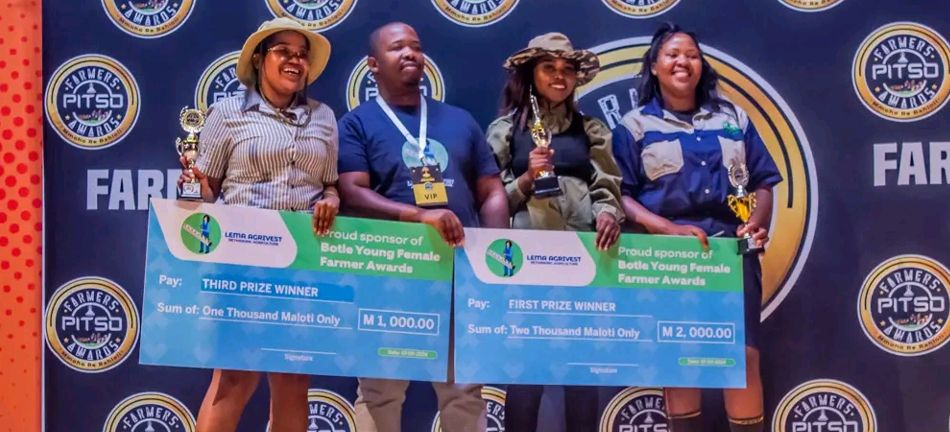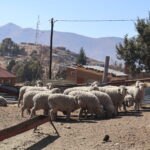Candice Khumalo
For Bloemfontein sheep and vegetable farmer Nombulelo Tshabalala, finding a market for her vegetables poses a significant challenge. However, Food For Mzansi’s recent Free State farmers’ day has provided her with unique ideas for overcoming many of these issues.
“I am thankful to Food For Mzansi for organising such events because, from now on, I know where to find help,” she said. “I’ve also learned that there’s actually more assistance out there for start-ups than I thought.”
Tshabalala was among the nearly 80 people who attended the event on Friday, 29 September, at Hoekieplaas in Reitz. Held in partnership with Youth in Agriculture and Rural Development (Yard), it offered new-era farmers an opportunity to connect with one another, discuss best practices, and build a stronger community.
Building relationships
Dimakatso Nonyane, a vegetable and grain farmer from town, mentioned that she learned a great deal about climate change and El Niño, which is expected to cause record-high temperatures across South Africa. She plans to prepare accordingly for her crops.
“I am grateful for the farmers’ day because I learned so much about El Niño and how to farm according to your environment. Also, I discovered loans and grants that could help me since I’m also thinking of adding 300 layer chickens next year.”
A chance to engage and understand
Karabo Mahlaba expressed his gratitude for being given the honour of hosting the Food For Mzansi event and being able to learn the importance of collaboration and building meaningful relationships.
“Also, understanding the role of climate in agriculture enables farmers to make informed decisions, adapt to changing conditions, and implement appropriate strategies to optimise yields and mitigate risks.”
Fellow farmer, agricultural consultant and Free State Yard representative Kgomotso Ranchu motivated young farmers to network and work together to bear fruitful results.
“At Yard, we work with a database of young farmers to have different types of enterprises that they deal with, so it helps us to work together as young farmers and to make South Africa better,” he said.
“It’s not only about getting funding but also about education. You cannot be in the agricultural sector, managing food processes, without any knowledge. So what we do is share knowledge with each other, which is one of the main objectives of Yard.”
‘Choose animals wisely’
Representing Bonsmora SA, Sandile Nzuza encouraged farmers to choose animals wisely by considering their environment and resources to determine which animals work best.
“As a farmer, it’s important to buy something that suits your environment so you can generate profits. Conduct research and understand what you’re buying, and if you have an animal that isn’t productive, turn it into a resource,” Nzuza said.
Meanwhile, as the world becomes more technologically advanced, Khula! is ensuring that the agricultural sector is evolving alongside it.
Product support officer Xolani Ndovela described how the app plays a crucial role in agriculture, introducing more local farmers to technology, and enabling them to order fertilisers, chemicals, animal vaccines, and more without needing to travel.
Preparing for the future
With El Niño predicted for the upcoming planting season, VKB agricultural economists Jessica Maroga and Kamohelo Mofokeng highlighted its implications and shared practical measures such as planting in deeper soils that retain more water and allow better root development, well-drained soils (to handle), and diversification.
Funding opportunities
Furthermore, Land Bank shared essential information about the blended finance programme for small- and medium-scale farmers as well as the Agro-Energy Fund. Eddie Sefotha, an agricultural specialist at the bank, explained that blended finance aims to commercialise farmers, enabling black producers and majority black-owned enterprises to meaningfully participate in and contribute to agricultural value chains.
AgriSETA assistant manager for rural development, Tsepo Nolangamandla, enlightened farmers about numerous funding and other opportunities available for cooperatives, SMMEs, and trusts.
He highlighted the various funding options available, which not only provide financial assistance but also offer opportunities to learn new skills, shaping the future of South African agriculture.
The red meat industry
Discussing the latest developments in the red meat structure, RMI TED transformation facilitator Khomotso Mashiloane highlighted the pivotal role of new-era farmers within South Africa’s red meat industry.
He pointed out that the 2030 vision outlined by Red Meat Industry Services recognises the importance of functions such as animal and public health, inclusive growth, market access, and competitiveness. Mashiloane emphasised the crucial contributions of new-era farmers, underscoring the need for meticulous record-keeping, optimal animal health, and sustainable practices to harness the industry’s vast potential.
Summary
- Held in partnership with Youth in Agriculture and Rural Development (Yard), it offered new-era farmers an opportunity to connect with one another, discuss best practices, and build a stronger community.
- “At Yard, we work with a database of young farmers to have different types of enterprises that they deal with, so it helps us to work together as young farmers and to make South Africa better,” he said.
- Eddie Sefotha, an agricultural specialist at the bank, explained that blended finance aims to commercialise farmers, enabling black producers and majority black-owned enterprises to meaningfully participate in and contribute to agricultural value chains.

Your Trusted Source for News and Insights in Lesotho!
At Newsday Media, we are passionate about delivering accurate, timely, and engaging news and multimedia content to our diverse audience. Founded with the vision of revolutionizing the media landscape in Lesotho, we have grown into a leading hybrid media company that blends traditional journalism with innovative digital platforms.










